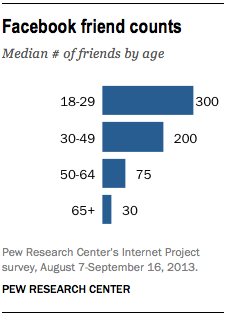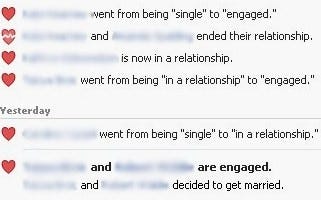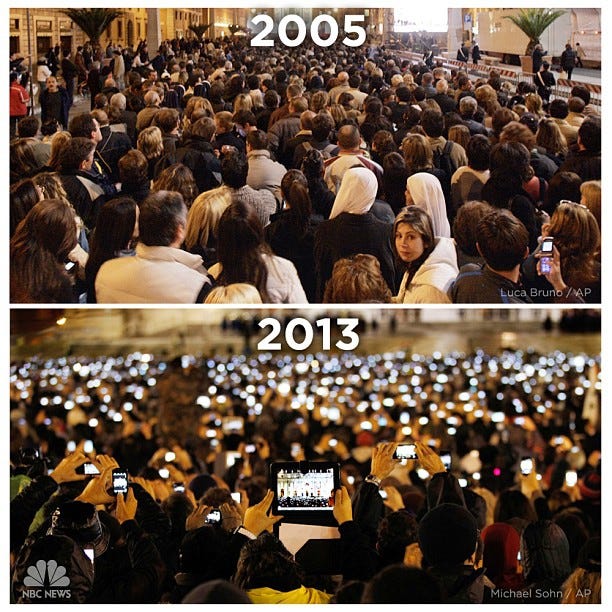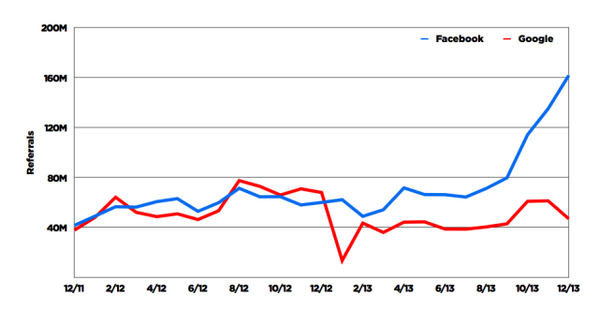Ten years ago Tuesday, Facebook launched in the Harvard dorm room of the now infamous Mark Zuckerberg. Today, the social networking site boasts 1.23 billion members worldwide (1 in 6 people) and has 350 million photos uploaded and 6 million “likes” every single day.
Nobody could have ever guessed that Facebook, now worth approximately $157 billion, would one day eclipse the value of media giants Time Warner and Disney. Here, one guy’s take on ten things that Facebook has changed forever.
1. The Definition of a “Friend”: Remember when a friend was someone you spent time with on a regular basis? Among adult Facebook users, the average (mean) number of friends is now 338, according to a new Pew Research study. That’s a lot of people to keep up with…

2. What it Means to “Poke” Someone: The poke has always been an uncomfortable human action. That changed even further with Facebook, when the social network introduced the poke as a way to nudge “friends” (see above)or friends of friends (ex: just saying hello). Awkward, yes. In late 2012, Facebook reintroduced “Poke” as a standalone mobile app (or as some called it, a Snapchat clone due to its self-destructing photos). It didn’t last long. Here’s to the end of the poke.
3. What It Means to “Like” Something: It’s never been easier to express your approval for a friend’s activity or a brand than through the Facebook “Like.” The Like feature on Facebook was created for two reasons. First, as a way to let people easily indicate their approval of something as “an easy way to let someone know that you enjoy it, without leaving a comment.” Secondly, it was created to make a connection to a Facebook Page — meaning brands, publishers, etc. can see if you “like” their products, services or offerings. Think of it as loyalty for the 21st century.
4. Parent/Child Relationships: Parents are friends with their kids. Kids are friends with their parents. It always meant one thing to say it, but Facebook changed the game when forcing children around the world to decide how much of their lives they let their parents into. Accept mom’s friend request?? What does that really mean? It even inspired this classic Saturday Night Live skit.
5. How Relationships Begin (And End): Facebook completely changed how relationships start, move to the next level and sometimes finish. Is your relationship Facebook official?

6. The Resume: When Facebook introduced Timeline in December 2011, many wrote about it being the new-age resume. Employers had been increasingly turning to social media and the web to review prospective employees, to which Mashable wrote in 2011: “From the giant cover image at the top to the chronological organization down the line, your Facebook profile is a resume for your life, not just your career.” And if you don’t think HR departments are looking at your photos and past activity during the hiring process, you’re greatly mistaken.
7. The Vacation Photo Album: When on vacation, people used to take images with film cameras, bring them home, get them developed and printed before putting into a fancy vacation album book (heck, stores like Michael’s and others made a real business out of this). That changed with digital (and eventually smartphone) cameras, but really it all changed when services like Flickr, Shutterfly and Facebook introduced the photo album. Why print out photos when they’re always accessible, everywhere you are?

8. Pushing The Look-At-Me Culture: People no longer live to enjoy the moment, but live to capture the moment and share with friends. Perhaps nowhere is that clearer than in a Facebook status update or in what some refer to as the “humblebrag.” From the NYTimes: “There’s nothing new about false modesty, nor its designation as a form of bad manners. But the prevalence of social media has given us many more canvases on which to paint our faux humility — making us, in turn, increasingly sophisticated braggers. Enter the self-deprecating boast known as the “humblebrag,” a term devised by the comedian Harris Wittels, a writer for the NBC series “Parks and Recreation.”
 St. Peter’s Square in Rome in 2005 vs. 2013, both times when a new Pope was named (via NBC News/Facebook)
St. Peter’s Square in Rome in 2005 vs. 2013, both times when a new Pope was named (via NBC News/Facebook)
9. How Brands Reach Consumers: Both good and bad, Facebook (and all social media for that point) have changed how brands communicate with consumers. The proliferation of social advertising created an entirely new advertising model and ecosystem (with hundreds of businesses) around social media marketing. Why? Word-of-mouth recommendations from friends and family, often referred to as earned advertising, are still the most influential and trusted, as 84% of global respondents across 58 countries said in a 2013 Nielsen survey. In turn, brands create content they think you’ll want to share with friends. In 2013, Facebook even blew past Google in driving site referral traffic (as depicted in the graph below), showing that producing premium content on Facebook is a serious business model.

10. The Digital Dataset: The amount of data being collected on individuals via digital platforms is astounding to think about. What’s even more surprising sometimes is how willing we’ve all become to share that information. On Facebook, that can be everything from what we’re listening to, where we are, what stores we shop at, what restaurants we eat at and much more. People on Facebook share more than 684,000 bits of content a day. And according to financial filings at the time of its 2012 IPO, Facebook stores around 111 megabytes of photos and videos for each of its users, who now number more than a billion. That’s 100 petabytes of personal information right there.
No comments:
Post a Comment